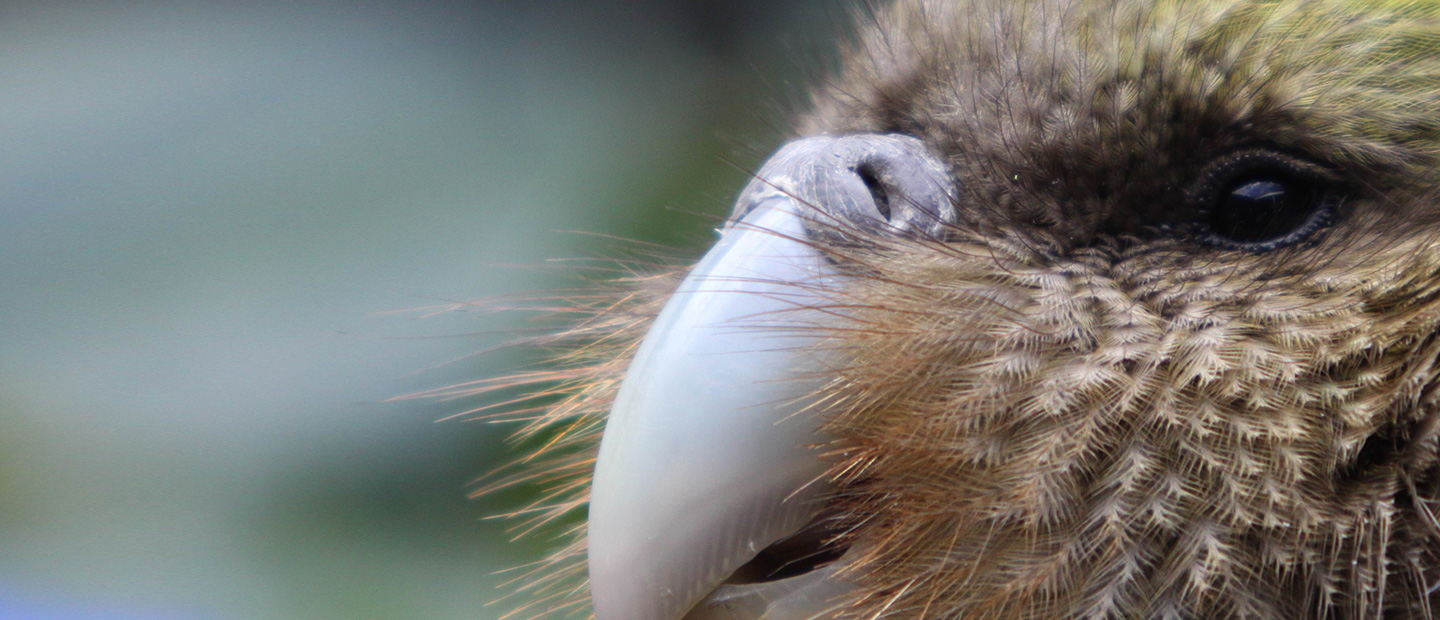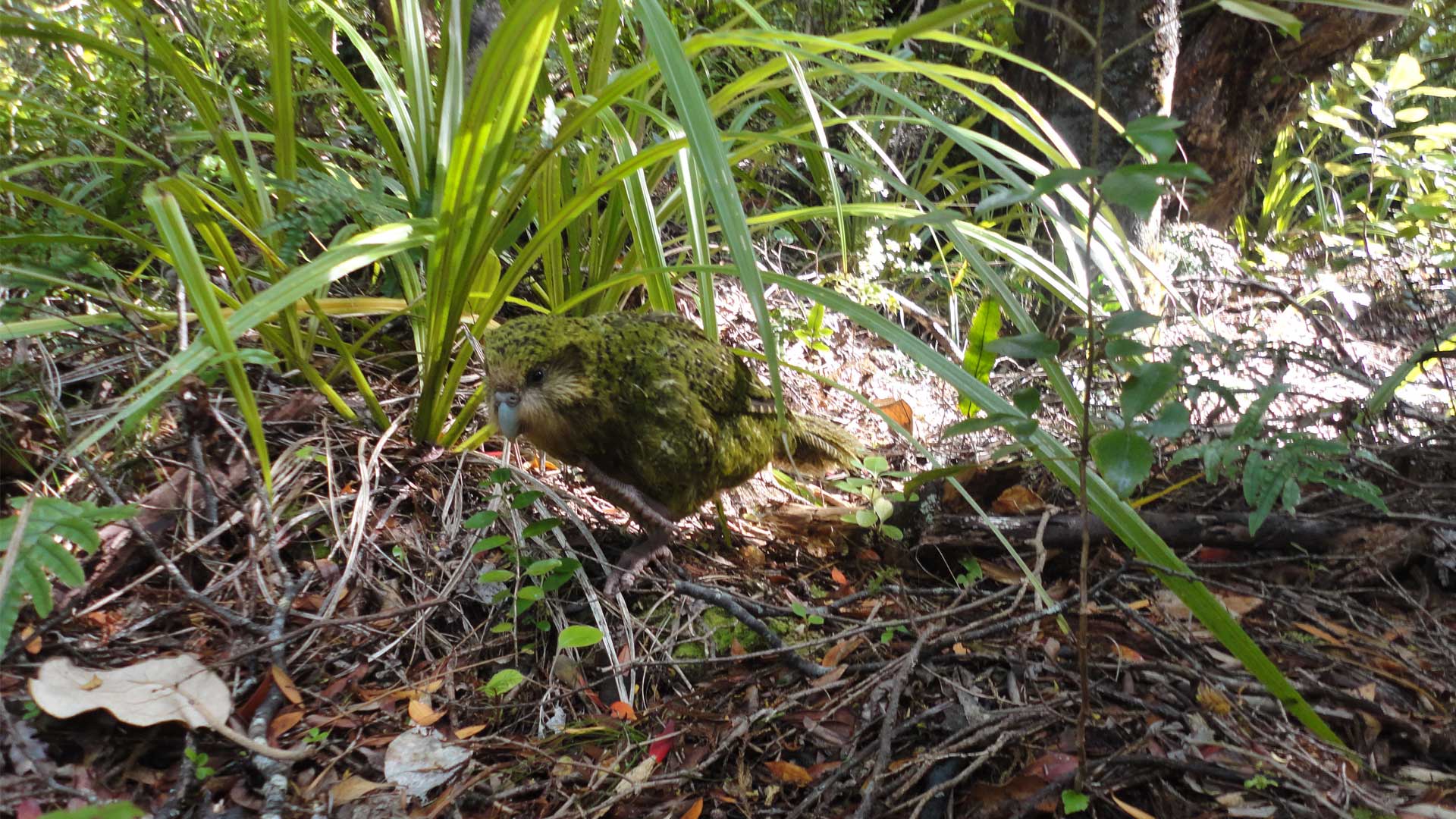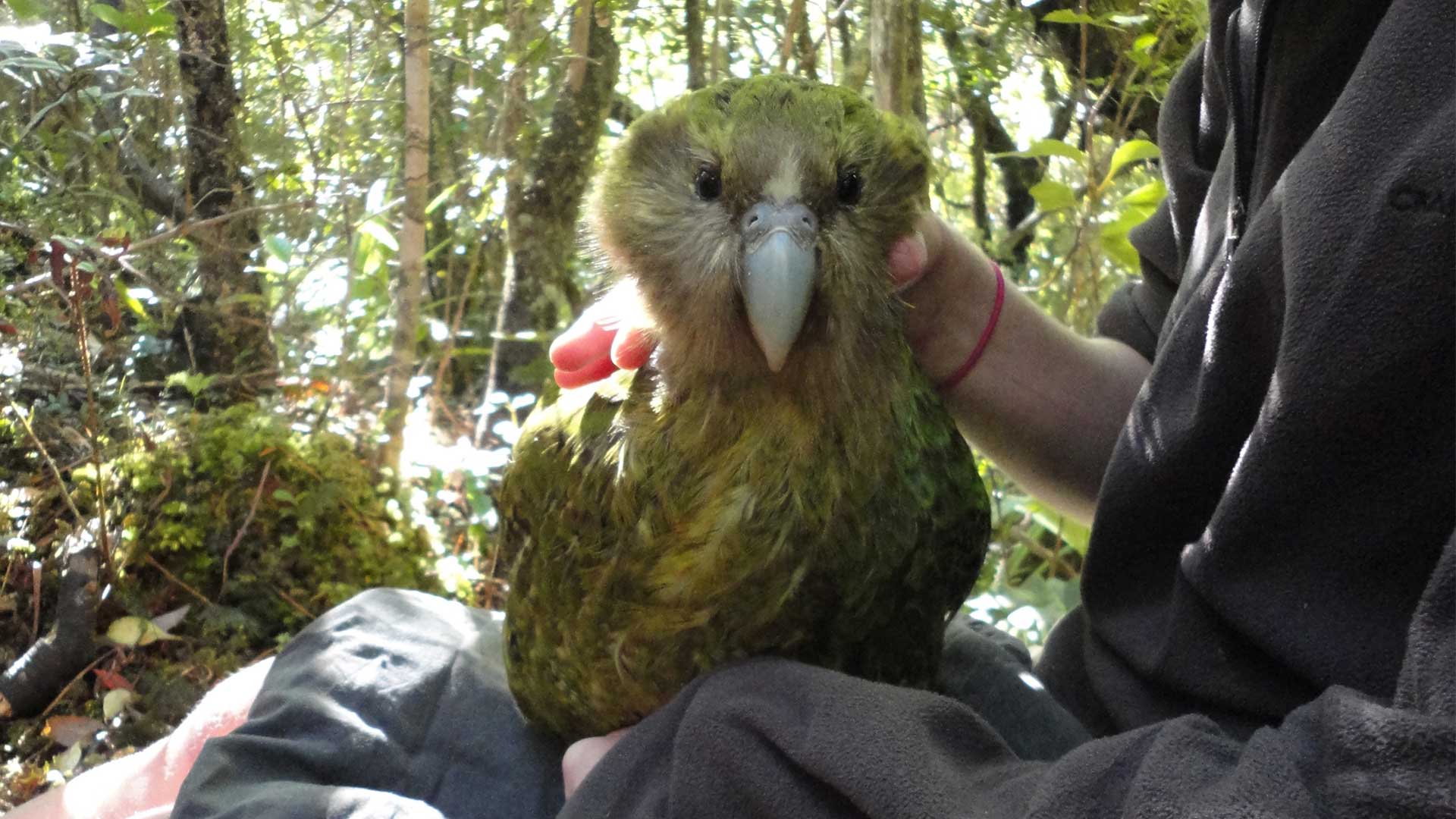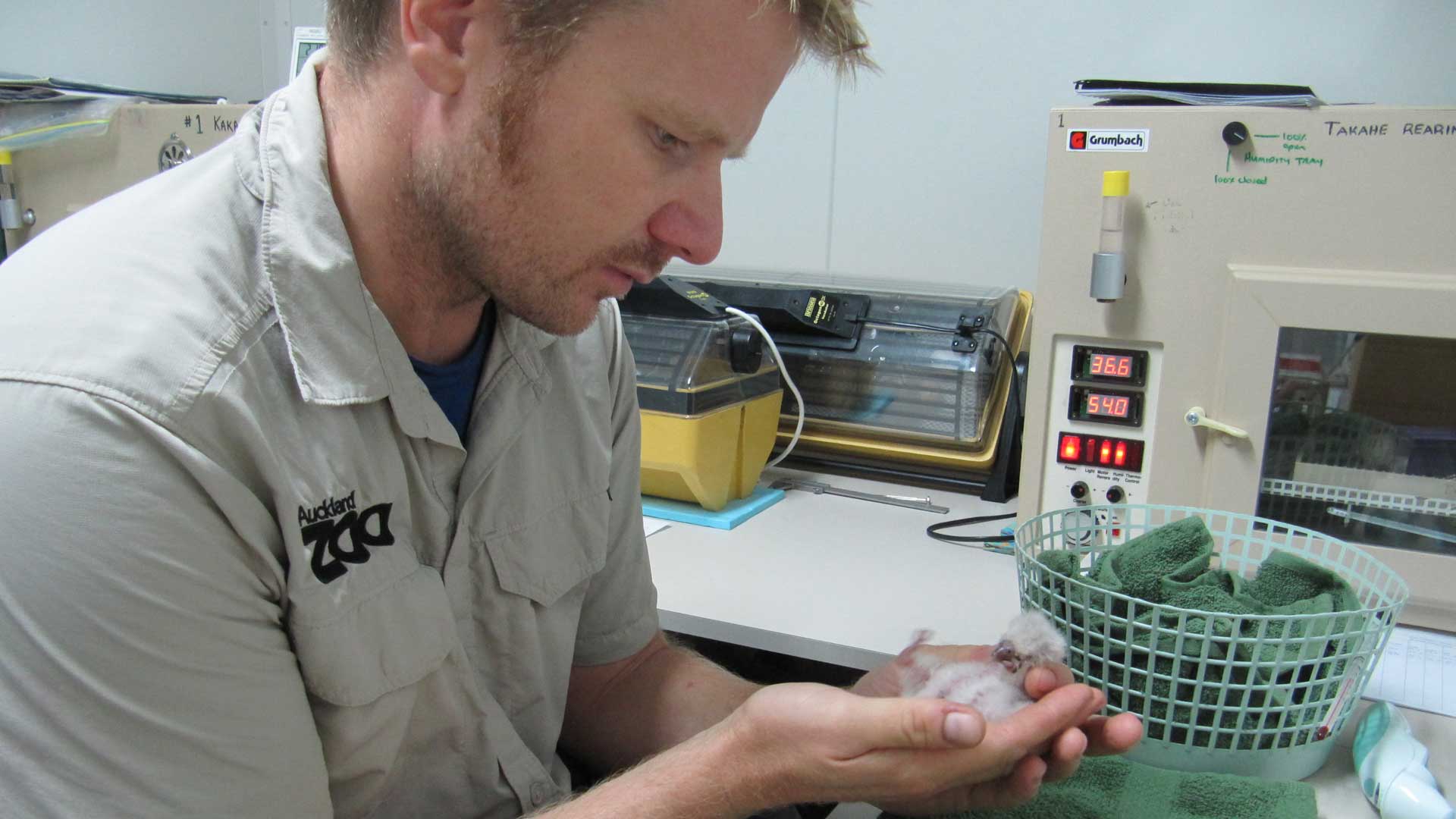Kākāpō are one of the most endangered birds in the world, currently only surviving on beautiful predator-free islands including Whenua Hou, Pukenui, and Hauturu-O-Toi. They currently only successfully breed and survive with the support of the Department of Conservation’s (DOC) Kākāpō Recovery Programme and Auckland Zoo’s veterinary services. Kākāpō on the southern islands feed their offspring rimu fruit and only breed every 2 – 6 years when these trees are mass fruiting, which is determined by long-term weather patterns. As such, human impact with introduced predators and global warming both have a huge impact on the survival of kākāpō.
Previous studies suggested kākāpō may have low levels of vitamin D. Calcium and vitamin D are important for healthy bones, breeding females, and growing chicks. To understand whether these low vitamin D levels are causing a negative effect, a 3-year research study was implemented using samples from routine health checks. This confirmed that kākāpō have normal calcium levels, but very low vitamin D levels compared to other parrots.
Years 2 & 3 of this research will focus on comparing the calcium and vitamin D levels between different groups of kākāpō (for example young vs old) and the effects of different food types. This research aims to guide nutritional advice and future management. The long-term goal for Kākāpō Recovery is a thriving unsupported population of kākāpō, and to one day reintroduce them to predator-free areas of the mainland.
Dr. James Chatterton joined Auckland Zoo in 2013 and heads Auckland Zoo’s Vet Hospital as the Manager of Veterinary Services. With almost 20 years’ experience, he has worked with domestic, zoo and wildlife species. Dr Chatterton completed a three-year residency at Chester Zoo in the UK in 2011, obtaining the RCVS Certificate in Zoological Medicine and a Masters in Veterinary Science, including research into lymphoma in Crested Wood partridges.





